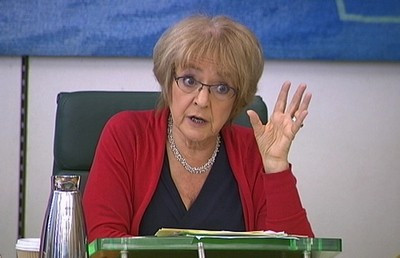BT 'Fleecing' Consumers Claim Adds Power to Miliband Push to Shift Political Centre Ground

Britain is moving to the left, voters have lost all trust in banks and big business, re-nationalisation of key sectors of the economy is back on the cards and shareholders and company bosses are facing a public backlash over their predatory behaviour.
It is the extreme interpretation of what Ed Miliband's game-changing conference speech signalled, but even a cursory glance at the daily headlines suggests there may be good reason to think he is on to something in the public mood.
The latest evidence has come from the powerful Commons Public Accounts Committee, which has accused BT of being given a near-monopoly of the broadband market, thanks to the way the government handed out contracts.
As a result the programme to roll out superfast broadband to rural communities has been pitched into chaos and, according to committee chair Margaret Hodge, taxpayers are being "fleeced".
"Too many people will not be able to access superfast broadband because BT will have failed to deliver it to their homes, and the taxpayer has been ripped off with £1.2bn going to the shareholders of BT," she said.
Culture minister Ed Vaizey has attempted to defend the government and BT, stating the company provided value for money.
"The National Audit Office made it clear that we have robust procedures for value for money, we will audit every invoice and we won't pay invoices that we think are unfair. But I don't anticipate BT trying to pull a fast one," he said.
And this goes to the nub of the issue. It is not just the banks and City that voters have lost all trust in, it is big business as well, particularly where government is handing over huge sums of public money to them.
Rail spending
On the same day the damning report into BT was delivered, the new head of the High Speed Rail company expressed his fears that confidence in the project might be crumbling.
Sir David Higgins said it was essential there was all-party support for the project, which is being completed by major industry contractors, and that he would always be frank with the public about spending on the link.
His plea came amid rising fears the bill for HS2 will escalate beyond the current £50bn, and signs from Shadow Chancellor Ed Balls that a Labour government might scrap it.
Meanwhile there is the government's planned £3bn privatisation of Royal Mail, one of the country's most prized institutions, and fears it might see an end to six-day deliveries and will hit unprofitable rural areas as the new company seeks to maximise profits for shareholders.
Unions have pledged to fight the move and Labour has argued the sell-off comes at a time when Royal Mail is making profits of £403m and is an attempt to plug a hole in government finances. Although it has fallen short of suggesting it could renationalise it.
Elsewhere, ex-business secretary and New Labour architect Lord Mandelson has predictably criticised Ed Miliband's energy price freeze announcement, saying it harked back to Old Labour and that the party had moved on from the days of having to choose between "state control and laissez-faire".
But, perhaps surprisingly, a whole raft of Blairites, including former spin chief Alastair Campbell, have weighed in behind Miliband and rejected Mandelson's remarks.
Shadow Energy Minister Caroline Flint was the most direct, declaring: "I know Lord Mandelson has financial interests in energy companies. I don't know if he's just speaking to them, but I'm speaking up for consumers and businesses, who are going to be helped by Labour's policies."
They are clear Miliband is not looking to create some new Socialist Republic of GB, but to shift the debate onto ways of making the market work for everyone, not just a few.
And that marks out the clear battle line the Tories know they will be facing in the long 2015 election campaign, already well under way. It will be between 'One Nation' Labour, claiming to be on the side of the consumer fed up with the perceived unfairness inherent in the market, and the Tories, who will struggle not to be cast as the friend of big business.
The challenge for David Cameron is to find an answer which chimes with the post-crash public mood yet avoids knee-jerk rhetoric about Miliband fulfilling his father's dreams and planning to turn Britain into a Marxist state.
© Copyright IBTimes 2025. All rights reserved.





















